Gen Z, Assisted Suicide, & the 'Digital Divine'
Gen Zer's are said to be paving the way for a future where spirituality and technology coexist harmoniously. And yet, it is technology that has made them the most depressed generation ever.
One-time or recurring donations can be made at Ko-Fi
You can listen to me read this essay here:
The first time my oldest son got into a fight was at the age of 13 or 14.
As one of the tallest kids, with a fearless attitude and a strong sense of justice (traits that got him into trouble more than once), he was always the one defending his friends.
I got a call from security at the Calabasas Commons that my son had beaten up another kid, and I needed to pick him up. I got in my car immediately, my heart pounding, wondering what had happened.
Calabasas is a wealthy area north of Los Angeles, inhabited by celebrities like the Kardashians and Justin Bieber. People move to Calabasas thinking it’s a great place to raise their kids. They soon find out otherwise, but most refuse to acknowledge it.
Behind the pristine facade of the Calabasas Commons, you will find teens smoking meth and fentanyl and dealing their parents’ or their own prescription medications. Death is always around the corner, driven by the modern-day scourges of depression and anxiety.
You can find some telling definitions of Calabasas High School in the Urban Dictionary, like this one:
The most miserable school in California, possibly the entire country, or heck, maybe the entire WORLD. If you consider yourself a nice, decent person with good morals, please do yourself a favor and DO NOT set foot on the campus of this horrible institution.
The girls? More like, evil demon monster creatures. Oftentimes, their undergarments are more visible than their intelligence.
The boys? Absolutely despicable in every sense of the word. They have no idea how to treat girls right; their hormones are raging and hence they feel the necessity to hurt as many girls as possible emotionally.
The teachers? HAHA! What teachers? Some of the rudest and most inconsiderate people I have ever met in my life. They always put themselves before their students and enjoy watching the pain and agony their students must endure on a daily basis.
I found my son sitting on a chair, an angry expression on his face, a security guard standing over him. The guard seemed like a decent guy. He expressed surprise when I showed up so promptly. Usually, parents didn’t even answer their phones or refused to come get their kids until they had finished their dinner party, their session with their therapist or trainer, or whatever other pastime was more important than their kids.
In the car on the way home, I demanded an explanation. My son explained that a kid had been taunting his best friend, who I will call Joe, about his sister. That day was the one-year anniversary of the suicide of Joe’s sister, who had hung herself in the closet of her bedroom, inside their mansion home. Everyone at school knew about the suicide. This kid, backed up by his little gang of friends, wouldn’t stop making fun of Joe and his sister, even though my son kept asking him to stop. Finally, my son had hit him and sent him to the ground.
Of course, I told my son his reaction wasn’t the best. But I understood. In what kind of world, especially one so privileged, did kids turn so viciously on those who were vulnerable like that.
Joe lived with his mom and stepdad in one of the most exclusive neighborhoods in Calabasas. But he was so traumatized by his sister’s death that he could not bear to be there, especially at night. He had terrible nightmares. He ended up living with us, in our apartment, sleeping on the sofa for close to three years.
That was fifteen years ago. Since then, suicide among young adults has continued to rise at an alarming rate.
Flora Martinez, a 12-year-old Las Vegas girl, took her own life this month after being bullied at school.
Last week, it was announced a 10-year-old Indiana boy, Sammy Teusch, took his own life after enduring over a year of severe bullying. His parents had reported incidents of bullying over 20 times- with the school taking no action.
For Gen Z, those born between 1997 and 2012, suicide is the second leading cause of death:
The suicide rate for people aged 10 to 24 increased by 56% between 2007 to 2017, according to new data from the CDC.
For children aged 10 to 14, the suicide rate tripled between 2007 to 2017 after years of decline.
Suicide had increased among millennials, but the data suggests Gen Z might be most at risk for mental illness.
Mental illness used to be an extreme condition, often treated in horrific ways such as lobotomies and electric shock, or further back in the 1800s, housing them with incarcerated criminals and left unclothed in darkness without heat or bathrooms, often to be chained and beaten.
We don’t do any of that now. Instead, mental illness has become as common as the common cold. We are told we all suffer from it. If you go to a therapist or a psychiatrist, chances are you will be diagnosed with something and put on medication.
Members of Generation Z growing up in an age of increased stress and anxiety. Some 70% of teens across all genders, races and family-income levels say that anxiety and depression are significant problems among their peers, according to the Pew Research Center.
One cannot go through a day without hearing the words “stressed”, “depressed”, “anxious”, multiple times. These words have become ingrained in our vocabulary. We see them everywhere on social media, the topic of TV shows, and in ads for medications that promise to make us “feel” better.
I have advised my grown children to stop using these words. As far as I’m concerned, they are as bad as swear words. Never use them in front of your children. My parents always told me that the words we use are powerful and when we speak a word, in a way, we bring it into existence. That’s why the discipline of getting up in the morning and verbally giving thanks for all of our blessings, —even if we don’t feel like it that morning—is vital to our wellbeing. Every day we make a choice of giving into the most negative parts of ourselves or overcoming it. Choosing to be thankful instead of feeling sorry for ourselves changes how we approach the rest of our day, and indeed, the rest of our lives.
We are told that it’s unhealthy not to “acknowledge our emotions” and we should “let it all out”. That might be true. But there is a difference between talking about our feelings over and over and taking drugs to dull our emotions, as opposed to finding positive ways to release those emotions. For me, punching a bag does wonders for my mental state.
We are told that if we are unhappy, there is something wrong with us. But it’s normal to feel unhappy. Too much time is spent worshiping at the feet of our emotions. This obsession with feelings has now taken us to the place where young people no longer need to feel bad about committing suicide. In fact, in some cases, they are encouraged to do it.
For the first time in history, at least from what I could find, suicide is now justified due to a persons’ mental suffering, rather than due to unbearable physical pain or as an honorable choice for warriors or those in high places who had committed crimes.
Just a few days ago, on May 22, Zoraya ter Beek, 29, fulfilled her wish to die by assisted suicide on the grounds of unbearable mental suffering.
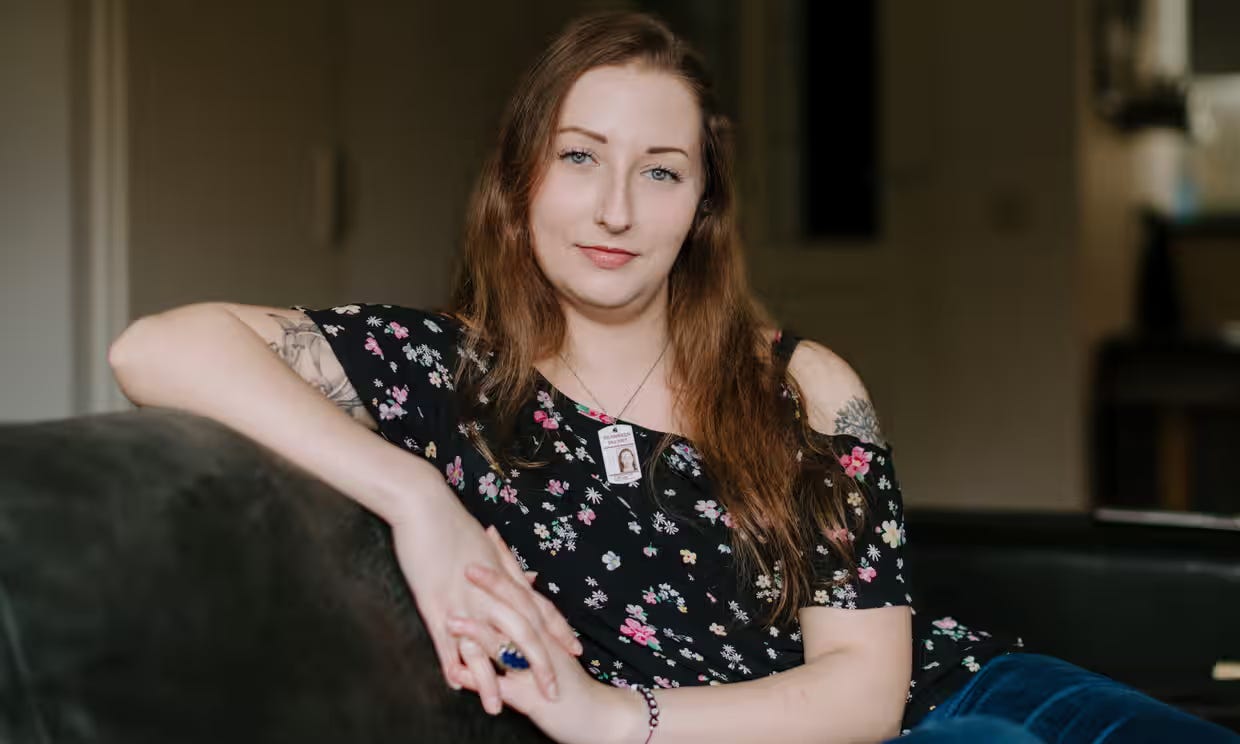
Beek previously explained to The Guardian how she suffered from anxiety, trauma, chronic depression and unspecified personality disorder.
In the Netherlands and a growing number of other countries, such as Canada, residents can be given this right of assisted suicide if experiencing ‘unbearable mental suffering with no prospect of improvement’ and are able to show they are ‘fully mentally capable and informed of the decision they are making’.
This seems like a contradiction to me. How can a person who suffers from “anxiety, trauma, chronic depression and unspecified personality disorder” show that they are “fully mentally capable” to make such a decision.
This is a far cry from ancient times when suicide was often about honor, such as was the case with Socrates.
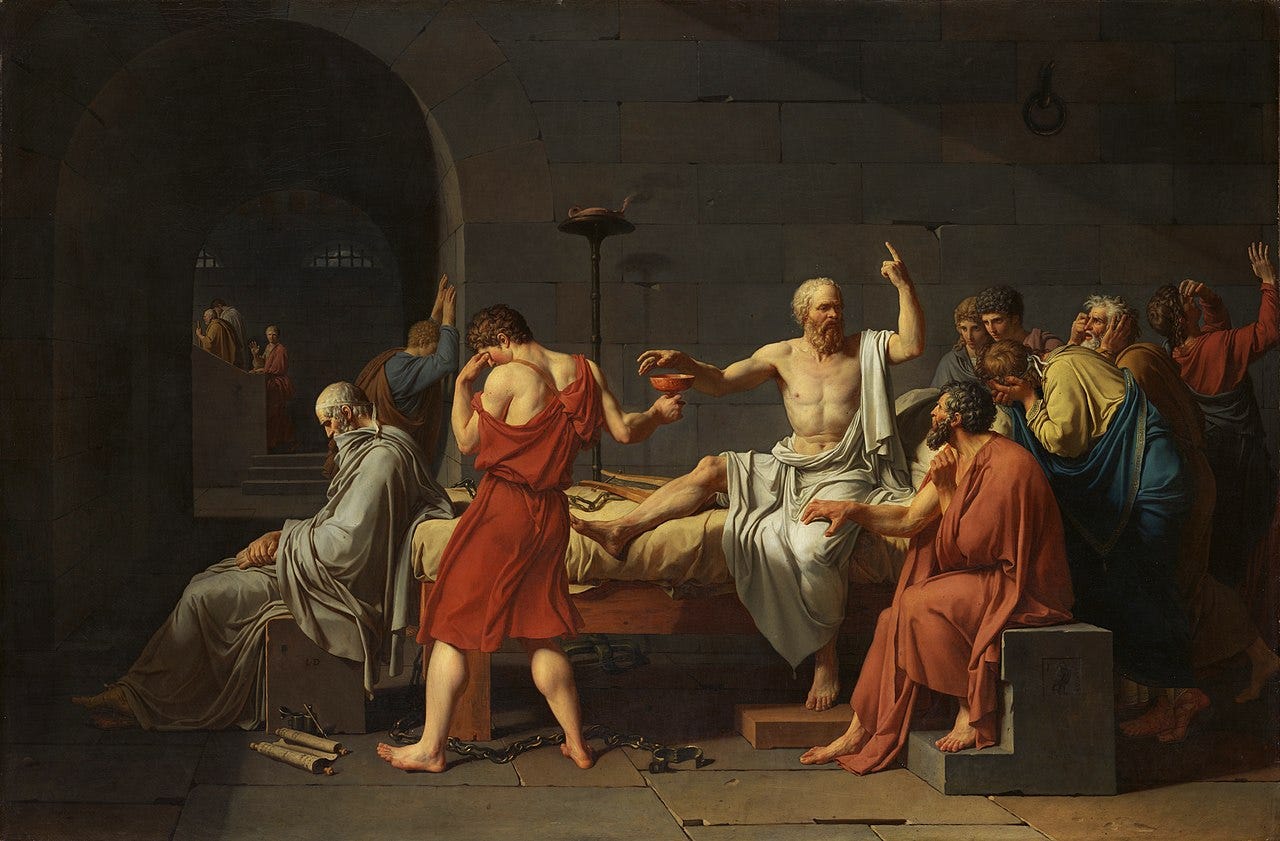
In ancient Roman Lucretia committed suicide as an atonement for being sexually assaulted, thus losing her chastity. Before dying, Lucretia said, "although I acquit myself of the sin, I do not free myself from the penalty." Writing on Ancient Greece, Elise Garrison said that many ancient victims of suicide “[were] determined to regain lost honor and restore equilibrium to society.”
As a samurai practice, seppuku was used voluntarily by samurai to die with honor rather than fall into the hands of their enemies, as punishment for having committed serious offences, or as a way to make up for shame that they had brought upon themselves or their families.
The samurai needed a firm resolve to plunge the knife in deeply enough that it would sever the abdominal aorta so that death would be rapid. It was the perfect example of complete commitment to honor.
The rise of the euthanasia movement in the United States “coincided with the so-called Gilded Age, a time of social and technological change that encompassed an "individualistic conservatism that praised laissez-faire economics, scientific method, and rationalism", along with major depressions, industrialization and conflict between corporations and labor unions. It was also the period in which the modern hospital system was developed, which has been seen as a factor in the emergence of the euthanasia debate”.
The physician and writer Max Nordau (1849–1923) argued that the rising suicide rate reflected a more general pattern of “degeneration,” an evolutionary regression of the human race caused by society’s neglect of the moral and hygienic health of civilized peoples.
Throughout history, acceptable suicide was not something a person did because they “wanted” to. It was forced upon them, or was a matter of honor, or a necessity in a tribe where weaker person was a danger to the rest, or as a merciful way to end physical suffering of the terminally ill.
Now, in our modern era of AI replacing humans, children are killing themselves not only due to a rise in depression, but because they are being encouraged to do so.
It doesn’t take a PhD to figure out that increases in adolescent depression and suicidal behavior over the last two decades have coincided with the advent of social media and the amount of time children spend online.
What I find baffling and completely unbelievable is that, at the same time as we are being given all this horrific information about our children, we are being told that Gen Z promises to “usher in a new age where technology and spiritual practices are seamlessly integrated”.
We know that getting off the internet and making connections in the real world is vital for the mental health of our children. So how can spending more time online can lead them to a higher level of spirituality.
Sorry, you cannot convince me that anything good will come of searching for spirituality inside of a machine, with AI to guide you. There is no way this is better than connecting in traditional ways, with nature, or with likeminded people in religious communities.
But those aren’t the only ways we grow spiritually. We also grow through physical hardships; we are tested by the challenges we face in our daily lives. Sitting passively in front of a screen is not going to bring anyone a higher level of spiritual understanding. It isn’t going to make anyone more courageous, nor will it help them feel connected to others or give them a sense that they are doing anything in this world that will matter in the next. Hardships accomplish that.
Sitting in front of screens only makes children more passive and depressed.
Mitchell Rutherford, a high school biology teacher in Tucson, has quit in frustration because kids are unmotivated, with half failing the class. All they care about is being on their phones.
He said he tried everything - “a 'phone jail' basket that few students used, teaching lessons on social media addiction and meditation, and taking kids on nature walks,” but none of it worked.
Meditation? Nature Walks?
Why would a kid want to do any of that when they can sit in their bedroom and connect spiritually through apps?
Just like Gen Zer’s are told to be “gender fluid”, they are told to be “faith fluid”. They are “deconstructing God”. Forget negative concepts like sin and accountability.
Generation Z Americans increasingly distances themselves from religious institutions like churches, mosques or synagogues, finding spirituality instead in practices like tarot card readings and sharing fears and musings in online spaces like TikTok.
They are into performing “digital rituals” and forming “vibrant online communities”. They want to experiment with combining cool practices, like Buddhist meditation with Wiccan worship. It’s all about whatever makes them “feel good”. From meditation apps to virtual reality experiences of ancient rituals, spirituality has never been more “accessible”.
Accessible? How does sitting in front of a screen where everything is so easily accessible make a person more spiritual. Especially when we know that living online causes increased feelings of isolation, depression and anxiety.
In the book Into Thin Air, Jon Krakauer’s “personal account of the Mt. Everest Disaster, Krakauer says:
“...I quickly came to understand that climbing Everest was primarily about enduring pain. And in subjecting ourselves to week after week of toil, tedium, and suffering, it struck me that most of us were probably seeking, above all else, something like a state of grace.”
Climbing Mt. Everest is an extreme activity that most people will never experience. It’s a kind of elite tourist pastime, however, still, in Krakauer’s excellent book, he illustrates how a person’s character is exposed when tried under such grueling circumstances.
The path of least resistance makes us weak, soft, easily manipulated. And certainly, sitting passively in front of a screen is that path of least resistance. For whatever reason beyond our ability to comprehend, it is through pain and suffering that we grow stronger and wiser, not through sitting around. We will never become more spiritually attuned, more mentally awake, more physically strong, thanks to an app. I don’t care how many tech billionaires like Sam Altman claim AI will help us evolve to a higher consciousness. It will do the opposite. It already is. Just look at our children.
Instagram, for instance, has been found to negatively impact the mental health of teenagers, according to a Wall Street Journal report. The popular photo-based social media platform is particularly hard on young women; it is credited with worsening body image issues for 1 in every 3 teenage girls, the report says. Assisted suicide stories are all over Instagram and TikTok.
How can young girls not be impressed by someone like Zoraya ter Beek, who wants every depressed young person to know it's okay to kill yourself and become a social media star for doing so.
This post struck me:
Beek decided she wanted to die after a psychiatrist told her 'there's nothing more we can do for you' and that 'it's never gonna get any better', The Free Press reported.
'I don't see it as my soul leaving, but more as myself being freed from life,' she said of her expected death. It will be like “a nice nap, because I hate it if people say, ‘Safe journey’. I'm not going anywhere.”
Not going anywhere? If that isn’t depressing, I don’t know what is.
But don’t worry, your child’s new AI guru will comfort her.
These apps promise to “transcend geographical boundaries” and create a “global spiritual community”. It’s hard to reconcile this “beautiful digital spirituality” with the fact the Gen Z is more depressed than previous generations for the very fact that they spend so much time online.
And, frankly, how do our youth have the mental capacity to create such spiritual connections when even Scrabble realizes how fragile Gen Z is and unable to think critically:
Apparently, Gen Zer’s find the competitive nature of Scrabble too intimidating. So, they’re adding a flip side called Scrabble Together, which will include “helper cards, use a simpler scoring system, be quicker to play and allow people to play in teams”.
According to a 2024 NIH report, Digital Methods for the Spiritual and Mental Health of Generation Z:
In a world where it is nearly impossible to socialize, work, and get an education without technology, Gen Z individuals are “always on”. Compared with other generations, Gen Z individuals spend more time alone or on digital communication platforms than engaging in in-person interactions. Adolescents who spend more time on social media than in in-person interactions are the loneliest compared with those who spend less time on social media.
It would seem therefore, that looking for spirituality inside what I like to call the Vast Machine is the last thing our children should be encouraged to do.
What’s the answer? Cator to the lowest denominator. Indulge the weakest parts of ourselves. Spend more time online, avoiding real life situations that can cause “anxiety and depression”. Download mobile aps that “grant users the ability to customize their experience,” enabling Gen Zer’s to autonomously decide which aspects of different spiritual beliefs and practices they resonate with. Anything that makes them feel uncomfortable can be discarded.
And then, there are “mental health” aps, that experts hope will “provide a new way for young people to tend to their spiritual and mental health”.
I was quite shocked when I looked into some of Gen Z’s favorite apps, shared by SageMichael. These apps are all about the propaganda our youth have been fed, like “saving the planet” through “green” energy and “sustainability”. Even suggestions like “staying indoors to save the environment”. Check these out:
Eco-Friendly Yoga Mats
Heathyoga Eco-Friendly Non-Slip Yoga Mat: A perfect blend of sustainability and functionality for the yoga enthusiast.
Green Meditation Cushions
Brentwood Home Crystal Cove Meditation Pillow: Elevate your meditation practice with this eco-conscious cushion.
Spiritual Apps Gone Green
Insight Timer: This app offers a vast library of free meditations, catering to the environmentally aware digital native. Explore Insight Timer
Nature Reconnects
Unplugged Digital Detox Retreats: For those seeking to reconnect with their spiritual center in nature. Learn more about Unplugged
Aromatherapy with a Green Heart
Juniper Ridge: Experience the wilderness indoors with minimal environmental impact. Discover Juniper Ridge
Mindful Jewelry
Bellabeat Leaf: Where technology meets fashion, tracking wellness in style. View Bellabeat Leaf
VR Meditation Journeys
Tripp: Revolutionizing meditation through virtual reality, offering a unique spiritual experience for the tech-savvy. Visit Tripp
Eco-Friendly Prayer Flags
Plantable Seed Paper Flags: Merge spirituality
All of these apps must be paid for, of course. The tech gods cash in on the products they insist our youth must buy, at the same time imprisoning them ever more tightly inside the Vast Machine, making them believe the outside world is too harsh and they can find spiritual fulfillment with their AI guru.
It sounds as if there are no boundaries; that Gen Z are these free spirits, making their own choices about their “spirituality”. The reality is that they are being manipulated more than any generation before them. Manipulated by the Vast Machine. Because remember, discovering your spirituality online means you are being influenced in your “personalized spiritual journey” by AI algorithms.
Gen Z’s Digital and Divine is not new, despite what they would like us to believe. It is the same old lies wrapped up in new packages. The dangerous difference is that it is now being presented in an enticing virtual world. Not the real world. Anything is possible in virtual reality. You can pretend you are anything, you can espouse any belief. You can save the planet or kill your neighbor, and it can all be part of your personalized spiritual journey.
For Gen Z, spirituality means social justice and concern for the planet—without really having to do anything. Environmental activism is a form of “spiritual expression”, with young people viewing the protection of the Earth as a “sacred duty”. Talking about one’s beliefs online has become synonymous with practicing those beliefs in the real world.
“Inclusivity” is at the heart of Gen Z’s spirituality, embracing all individuals, regardless of religion, gender, sexuality, or cultural background. There is no right or wrong. No good or evil. No absolutes. Just feelings. Gen Z often refer to themselves as “nones.” They are, literally, “nothing”.
Gen Z’s redefinition of spirituality reflects a broader shift in societal values towards inclusivity, authenticity, and a deeper connection with both the self and the world at large. All of this can be found in online apps that guide them toward a more
Yuck. I’m sorry, but the exact opposite of our children becoming “compassionate, mindful, and interconnected society” is what happens when they get captured by these online experiences.
Children are born empty vessels. The tech gods are eager to fill that emptiness with their own version of faith and spirituality.
Just as children are being told they can pick their own gender, a responsibility that should never fall on a child, they are being told they can pick their own spirituality. Children don’t have the life experience to make such a choice. They need guidance. And of course, they are getting it. They are told they are making their own decisions but it’s algorithms, fashioned by the AI gods, are making decisions for them.
A disturbing example of this new spirituality is the hugely successful horror M3GAN, Gen Z’s first “Horror Icon” movie. You can watch the trailer below if you dare.
This isn’t your typical horror/slasher movie with a lot of blood and gore. At least those movies, like the ones adapted from Stephen King novels, almost always include a moral, where evil and bad choices are punished. This move isn’t like that.
This movie blurs the lines between reality and fantasy more than any horror movie before it. Increasingly, we don’t know where reality ends, and fantasy begins. Children are being told they can create their own realities and that’s what they do with this movie. But what makes us think the realities we create in virtual worlds will be any better than the horrors we have created in our very real world.
With AI, kids can now invite the horror of a movie into their bedrooms, it can stand in front of them, or they can enter a virtual world where they can recreate that horror. They can blend reality and fantasy in ways kids never could before. They can create as twisted a world as they want. They can mutilate and kill those they don’t like without any consequences. They can have their evil twin or a robot of their own making do the killing, the torture for them and no one will punish them for it.
To encourage kids to think like this, they can buy a screen-accurate M3GAN replica of the loyal dolly/robotic murderbot, standing at over four feet tall. It’s the perfect toy to protect them, to keep them from ever feeling lonely or sad. How real will these toys one day become?
Is this the end result of the spirituality that the tech gods rave about.
When children are given the freedom to create who they are and “friends” that can do their bidding, their natural growth from child to adult is distorted in so many disturbing ways. Their increased experiences of living in a fake world without real consequences makes it impossible for them to progress in a healthy manner, physically, mentally or spiritually.
Yet the tech gods assure us that Gen Z is better equipped than anyone before them to create their own wonderful journey of self-exploration and spirituality. And adults have no right to interfere. Such interference would cause them too much mental distress.
Gen Z didn’t get like this on their own. They are the product of those who went before, such as Millennials, those born between 1981 and 1996.
A Time article describes Millennials like this:
Millennials are interacting all day but almost entirely through a screen. You’ve seen them at bars, sitting next to one another and texting. They might look calm, but they’re deeply anxious about missing out on something better. Seventy percent of them check their phones every hour, and many experience phantom pocket-vibration syndrome. “They’re doing a behavior to reduce their anxiety,” says Larry Rosen, a psychology professor at California State University at Dominguez Hills and the author of iDisorder. That constant search for a hit of dopamine (“Someone liked my status update!”) reduces creativity. From 1966, when the Torrance Tests of Creative Thinking were first administered, through the mid-1980s, creativity scores in children increased. Then they dropped, falling sharply in 1998. Scores on tests of empathy similarly fell sharply, starting in 2000, likely because of both a lack of face-to-face time and higher degrees of narcissism. Not only do millennials lack the kind of empathy that allows them to feel concerned for others, but they also have trouble even intellectually understanding others’ points of view.
If you think Millennials sound messed up, why would we think Gen Z, who practically live inside their devices, are any better.
And what do we have to look forward to with Gen Alpha, those born between 2010 and 2025 to Millennial parents? These kids’ entire communication is done through machines. It will not be long before the machine becomes a part of their body.
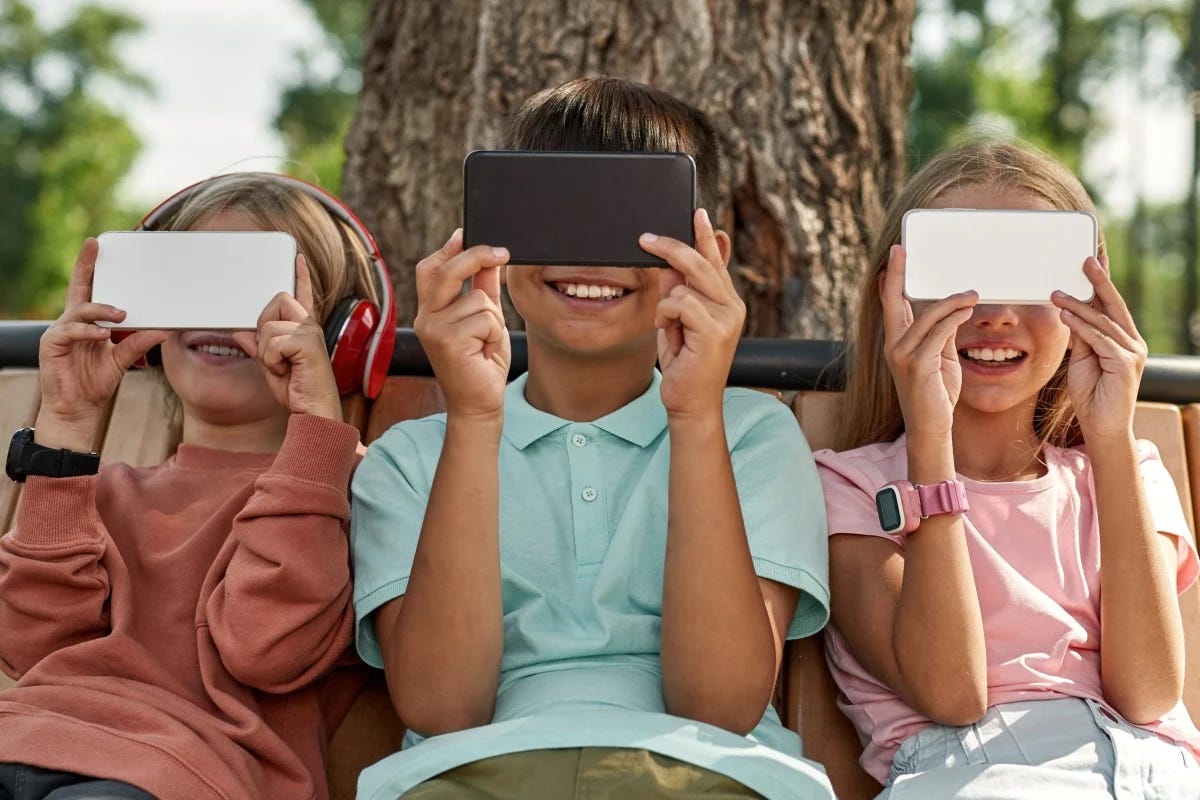
“Everyone on the internet is really scared of Gen Alpha,” says Gen Z influencer Rivata Dutta, aka Riv, whose content is popular with alphas on TikTok. “They’re like, oh my God, Gen Alpha is so weird.”
Check out this typical TikTok offering if you dare.
If this is heading us toward any type of new “spirituality”, our children should be protected from it, not encouraged to fall further into this nightmarish abyss.
All this talk of spirituality never includes the importance of listening to parents or grandparents. There is no reference to the wisdom of the elders. There is no encouragement to share the stories of our pasts, so that children develop a deep-rooted sense of who they are in the greater scheme of the universe or a pride in the history of their families.
Such knowledge traditionally passed down from generation to generation, is dangerous to the tech gods. They want our children’s minds wiped clean of everything connecting them to life before AI. Children should be born as empty vessels to be filled by the new religion of the AI gods.
Gone will be the words of Frances of Assisi:
“Remember that when you leave this earth, you can take with you nothing that you have received - only what you have given: a full heart, enriched by honest service, love, sacrifice and courage.”
No app will ever give a child more wisdom than has already been offered by those who have lived before, such as those words by Assisi, passed down in religious texts. That is how we learn best, from the wisdom of our elders. From the examples of those in our lives that we look up to and respect. We rebel, we fall, we pick ourselves up and we realize, yes, they were right. And then, we pass on that wisdom to those who come after us.
Yes, we then have the freedom to question, to explore for ourselves, but not inside of a machine that controls us, outside in the real world where unpredictable things happen.
Such teachings and learning experiences cannot be found in the “spiritual apps” that AI promotes for our children. I cannot think of any greater evil, any bigger lie, than these lies being fed to our children.
We should remember the words of Francis of Assisi, make this our daily practice and set this example for our children:
Lord, help me to live this day, quietly, easily. To lean upon Thy great strength, trustfully, restfully. To wait for the unfolding of Thy will, patiently, serenely. To meet others, peacefully, joyously. To face tomorrow, confidently, courageously.
In the real world, with all its trials and tribulations, with all its uncertainties, with all its pain and sorrow. The wisdom that we learn, the miracle of life, is that it is in this real, messy world that we find the courage to take us through the darkest forest. Only this confrontation with reality will bring us joy—not momentary happiness—but true joy and serenity.




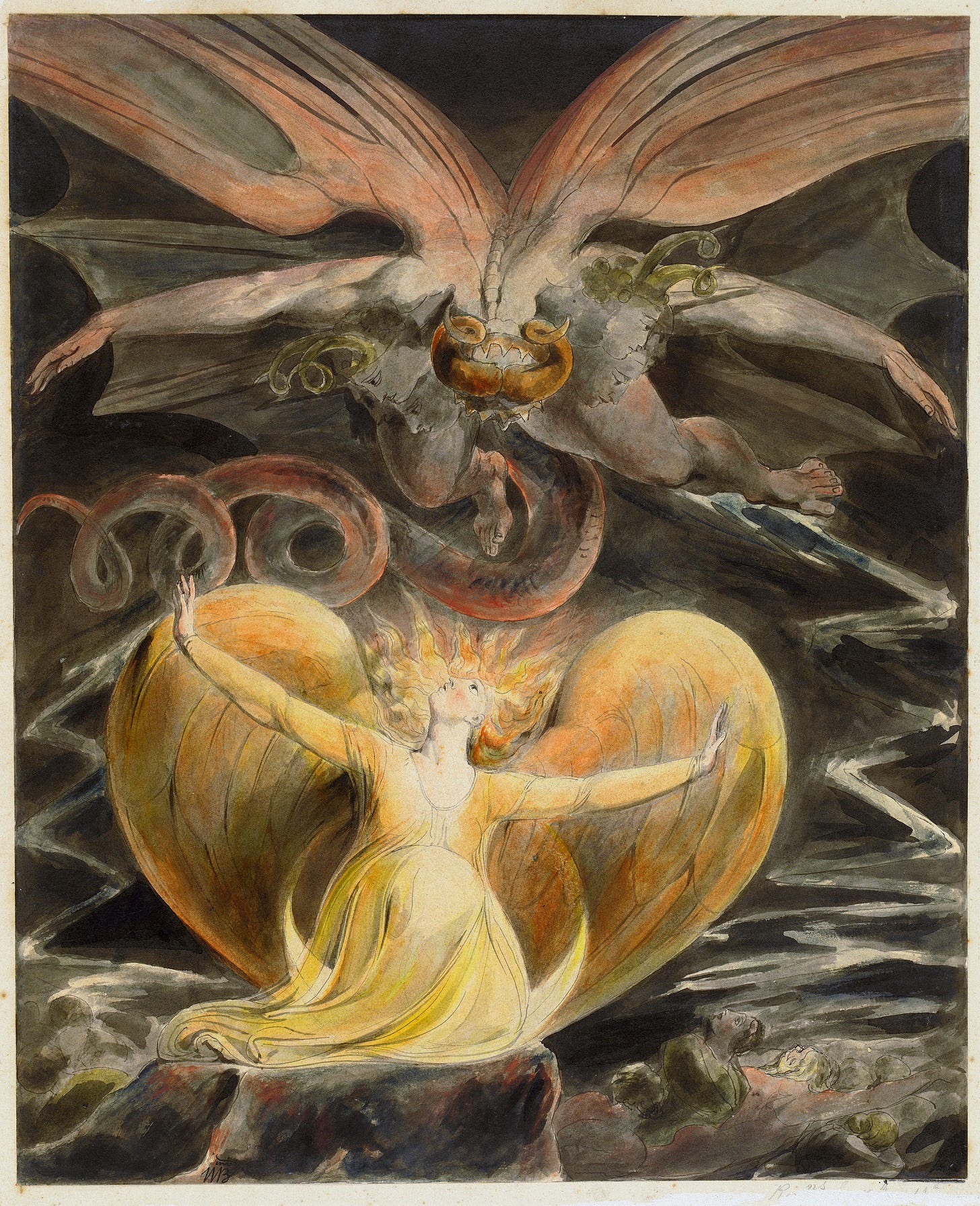
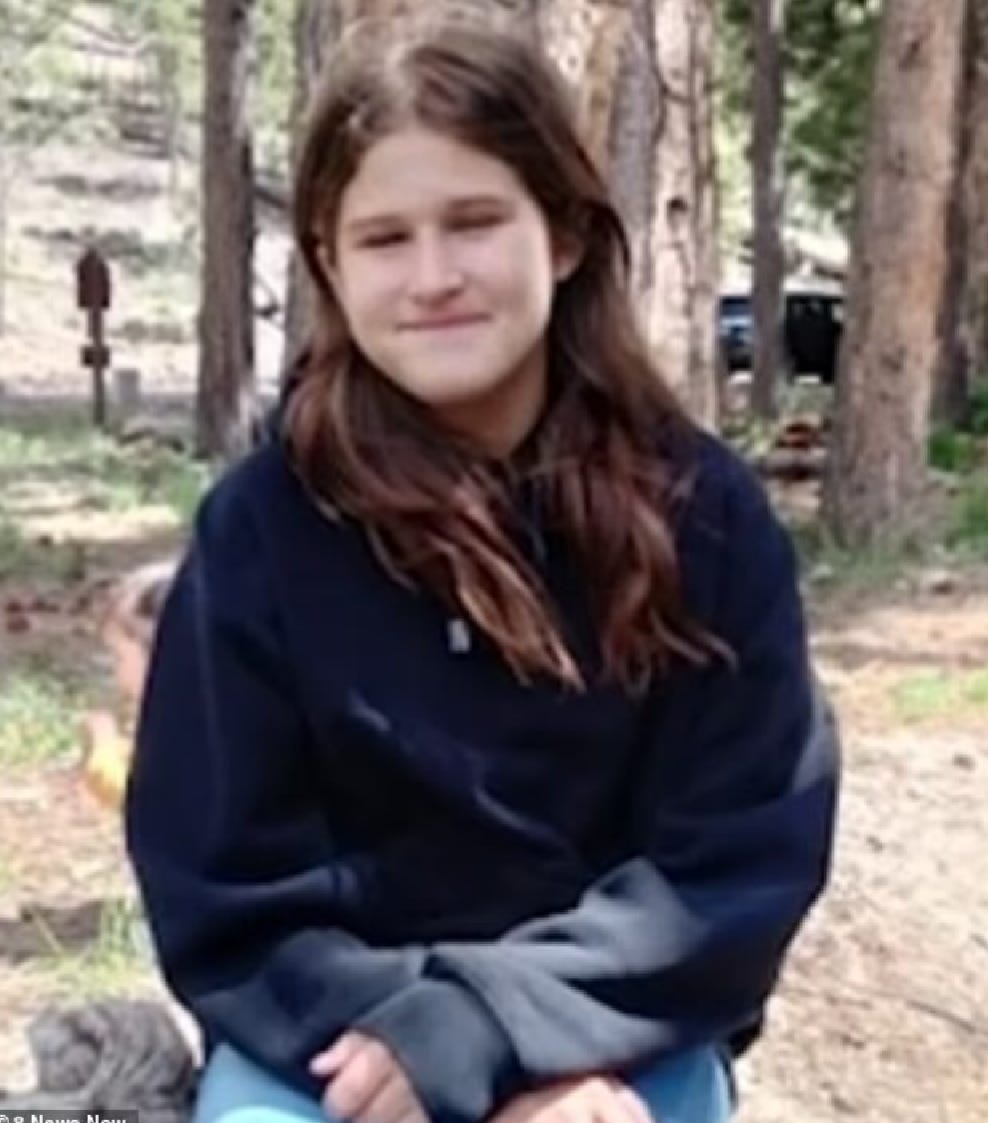

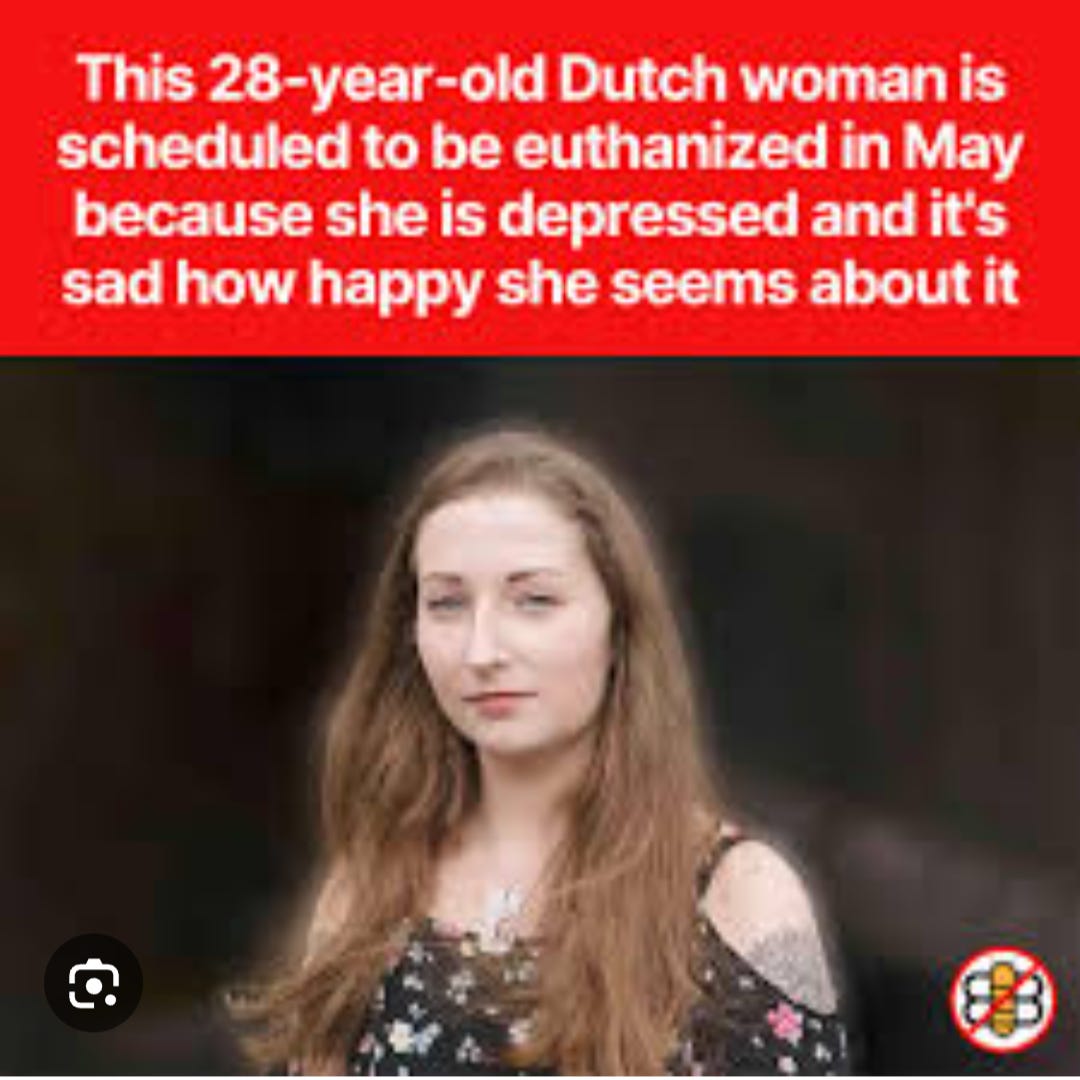
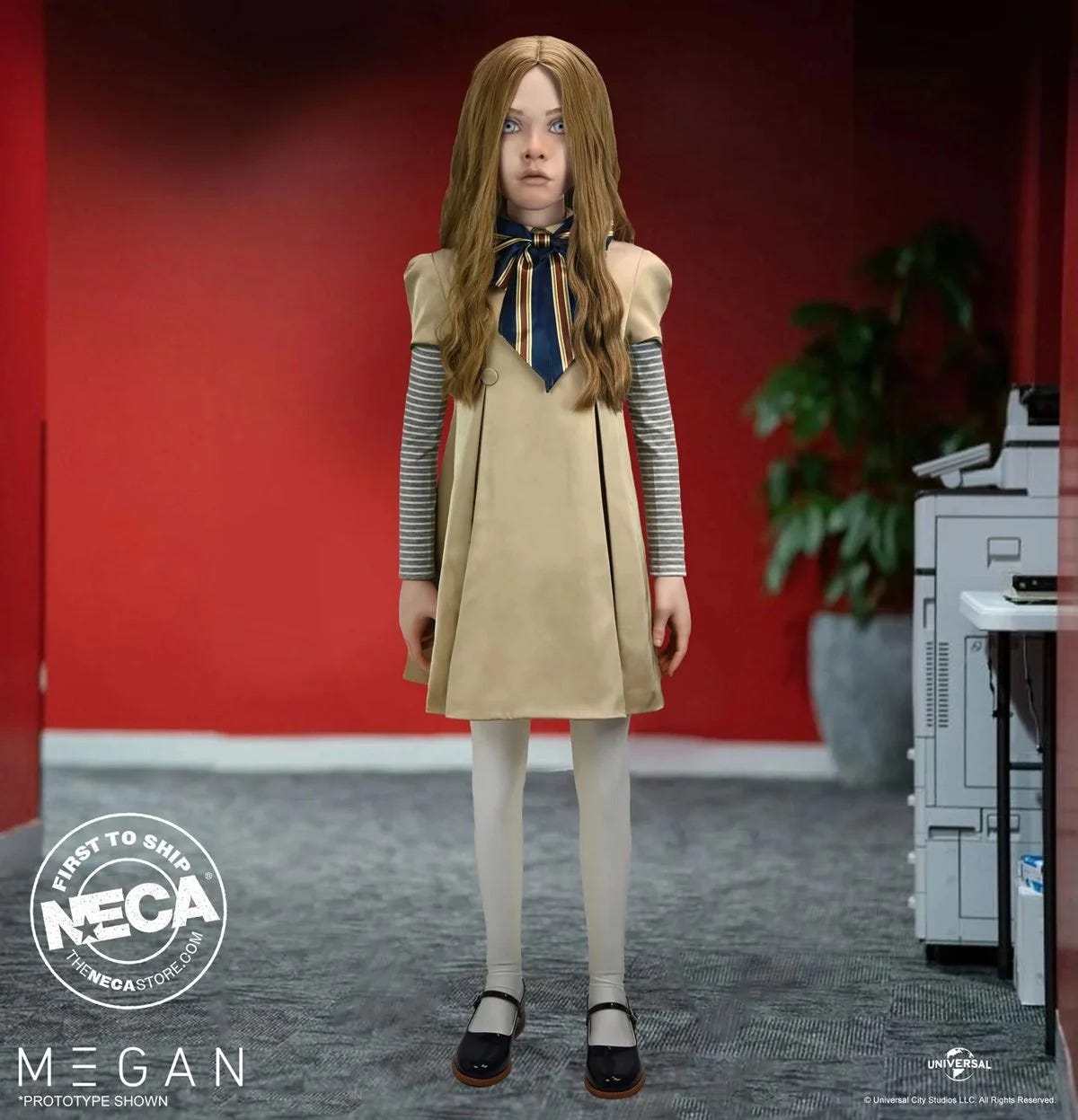
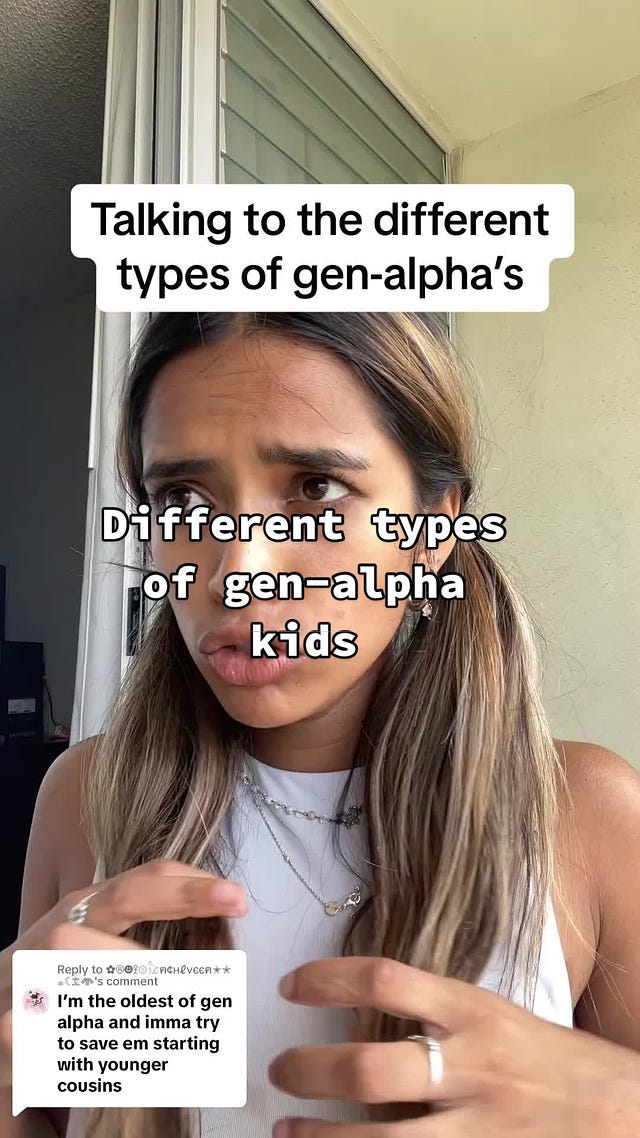

Amen. This essay more than any other you've authored addresses the future of humanity at a very basic level- thank you so much- I pray many people read this and realize we must save our precious children from wanting to kill themselves. Come on people wake up!!!!!!!!!
"Just like Gen Zer’s are told to be “gender fluid”, they are told to be “faith fluid”. They are “deconstructing God”. Forget negative concepts like sin and accountability." Great sentence. Sums up so well with simplicity. You can see the impact of French philosophers such as Foucault. It is a weird mishmash of nihilism, and hedonism with some guilt-ridden religiosity about even existing thrown in to create a dystopian meal that seems appealing until you try and digest it.